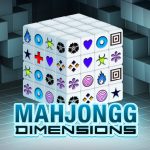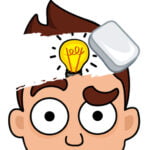Brain Games – Strengthen Your Mind Through Play 🧠
Brain Games are activities designed to enhance cognitive functions such as memory, attention, problem-solving, and logical reasoning. From ancient puzzles to sophisticated digital platforms, brain games have evolved into a popular tool for mental stimulation across all age groups.
📜 The Evolution of Brain Games
The idea of using games to sharpen the mind is not new. Throughout history, various cultures have embraced puzzles and intellectual challenges as forms of entertainment and education. Ancient civilizations, including those of Greece, Egypt, and China, valued riddles and strategy games that required critical thinking and creative problem-solving.
The digital era introduced a new dimension to brain games. In the early 2000s, Nintendo’s Brain Age series demonstrated the potential of video games to improve cognitive skills through structured exercises. These games became widely popular, offering daily activities designed to enhance memory, concentration, and logical reasoning. Titles such as Big Brain Academy e Smart As… followed, providing diverse challenges to boost mental agility.
Modern brain games often incorporate scientific principles designed to enhance various aspects of cognitive health. From mobile apps to virtual reality experiences, developers have expanded the reach and appeal of brain games to audiences worldwide.
🔑 Key Features and Popular Games
Brain games are known for their varied mechanics that target specific cognitive skills. Popular features include:
- Memory Challenges: Games that focus on recalling information through matching pairs, sequences, or recalling detailed visuals. Examples include Brain Age e Lumosity.
- Problem-Solving Tasks: Puzzles that encourage logical thinking, pattern recognition, and strategic planning. Sudoku and crosswords are popular in this category.
- Attention Exercises: Tasks that require focus and quick reaction times, such as identifying discrepancies or sorting items within time limits. Big Brain Academy excels at offering these activities.
- Resource Management Games: Games that test a player’s ability to allocate resources efficiently, promoting strategic decision-making. Examples include Civiltà and other simulation titles.
🌟 Why Brain Games Appeal to Different Players
Brain games appeal to a diverse audience because they offer both entertainment and mental benefits. Some of the reasons why people are drawn to these games include:
- Cognitive Improvement: Many players use brain games to enhance memory, focus, and analytical skills. This appeal is powerful among adults and seniors aiming to maintain mental sharpness.
- Educational Value: Parents and educators often recommend brain games for children to develop problem-solving and critical thinking abilities.
- Personalized Challenges: Modern brain games often include adaptive difficulty, allowing players to progress at their own pace and tackle increasingly complex tasks.
- Accessibility: Mobile apps and online platforms have made brain games more convenient and widespread, attracting casual and dedicated players alike.
📈 Trends and Audience Demographics
The demand for brain games has surged as more people recognize their benefits for mental wellness. Studies reveal that brain games are not only popular among children and teenagers but also among adults and seniors. The market for cognitive training applications is expected to grow significantly, driven by advancements in artificial intelligence and user personalization.
Younger audiences are drawn to brain games that incorporate gamification and social elements, while older adults appreciate games designed to enhance cognitive resilience and memory retention. The versatility of brain games makes them appealing to a broad spectrum of players.















































